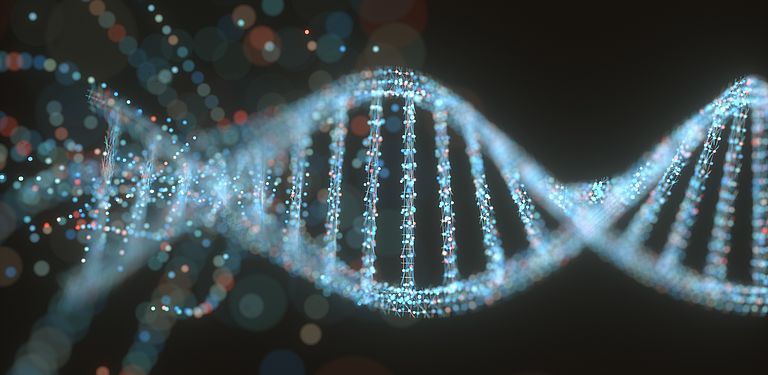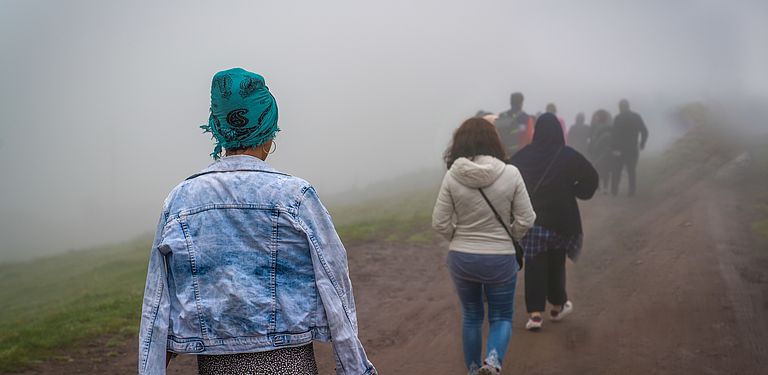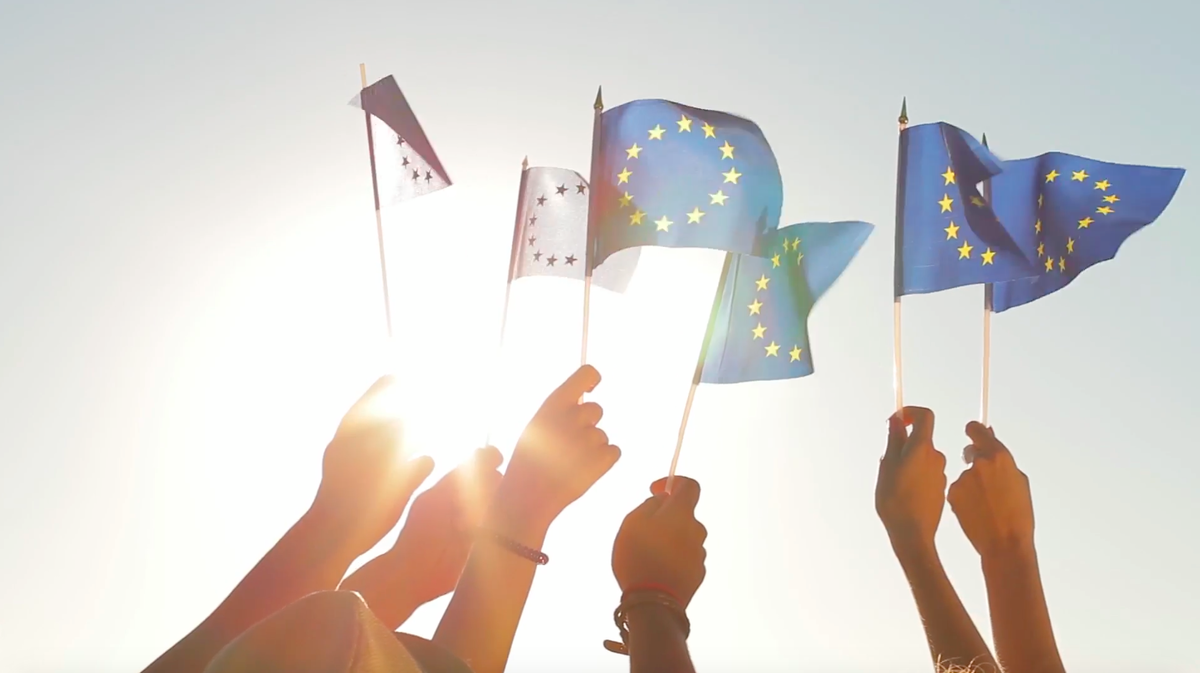Photo: Colourbox
“Research ethics and the ethics of science are always a balancing act between the freedom of science and the responsibility for the consequences of new discoveries”, says Karoline Reinhardt, Professor of Applied Ethics at the University of Passau. “To my mind, the two sides cannot be treated in isolation. Responsibility arises from freedom and it is only our ability to take responsibility that justifies our freedom.”
Professor Karoline Reinhardt
What kind of ethical questions are raised by of social and political transformation?
What kind of ethical questions are raised by of social and political transformation?
Professor Karoline Reinhardt is Junior Professor for Applied Ethics at the University of Passau. Before taking on her position at the University of Passau, she was a PostDoctoral fellow at the Ethics & Philosophy Lab of the DFG Cluster of Excellence “Machine Learning: New Perspectives for Science” and the International Center for Ethics in the Sciences and Humanities at the University of Tübingen. Previous to that, she held research and teaching positions at universities in Ankara, Graz, New Orleans, and Munich. She is a member of the Young Academy of the Heidelberg Academy of Sciences.
Addressing questions of ethics is now an established part of the research process, and institutions such as the German Research Foundation (DFG) and the German National Academy of Sciences Leopoldina have issued recommendations on this topic. The summary of the publication on Scientific Freedom and Scientific Responsibility, which was jointly issued by the DFG and Leopoldina and deals with security-relevant research, states: “Research plays a fundamental role in ensuring progress. Freedom of research, which is enshrined in the German Basic Law, is a fundamental requirement in this respect. Yet free research is also associated with risks. These risks can only be covered to a limited extent by legal regulations and result primarily from the danger of useful research findings being misused (known as the dual-use dilemma).” This document was drawn up by the Working Group on Dual Use – Handling Security-Relevant Research and is based on the Max Planck Society’s code of conduct, issued on 19 March 2010, on the responsible engagement with scientific freedom and research risks (German title: “Hinweise und Regeln der Max-Planck-Gesellschaft zum verantwortlichen Umgang mit Forschungsfreiheit und Forschungsrisiken“).
As research processes become ever more complex, it is increasingly important to look at how these processes are designed from multiple angles.
Professor Karoline Reinhardt, Junior Professor for Applied Ethics at the University of Passau
The authors of the joint DFG and Leopoldina publication also make an appeal to researchers to look beyond mere compliance with the letter of the law, writing: “After all, researchers’ knowledge, experience and freedom give them a special ethical responsibility that goes beyond legal obligations. Furthermore, research institutions should create framework conditions for ethically responsible research.”
This is a continuous learning process, says Reinhardt. “Consider, for example, that human test subjects now have to give their consent to a study and that scientific progress has no claim to absolute supremacy. As research processes become ever more complex, it is increasingly important to look at how these processes are designed from multiple angles. This is a key aspect of responsible research.”
Projects on the Topic of Ethics
Growing number of enquiries to the Ethics Committee
The growing number of enquiries to the University Research Ethics Committee shows that the topic is extremely relevant and increasingly urgent at the University of Passau, too. The range of issues on which the committee has been consulted since 1 October 2019 goes beyond the security-relevant aspects of research. “The Ethics Committee has two areas of activity”, explains its chairwoman, Professor Susanne Mayr. One is advising on security-relevant aspects of research, which is particularly pertinent if the research project relates to subjects and technologies that are connected to the development of weapons or if there is an immediate risk of abuse with regard to the research subject. However, so far this area has played a minor role. “At the University of Passau, we have not yet received any such enquiries”, says Mayr. “Much more frequently, we advise academics at our university on the ethical aspects of research, which come into play when a research project is potentially associated with risks to human dignity, life, health, freedom, property, animals, the environment or peaceful coexistence.”
Professor Susanne Mayr
How does being connected online affect us as humans?
How does being connected online affect us as humans?
Professor Susanne Mayr has held the Chair of Psychology and Human–Machine Interaction of the Faculty of Social and Educational Sciences since 2015.
One recurring topic is digitalisation and artificial intelligence. Professor Karoline Reinhardt, who is also a member of the University’s Ethics Committee, expresses her concern: “Digital technologies and how they are used have the potential to cause significant societal transformation processes. A lot of the time these processes aren’t grounded in democratic principles – and that, to me, is a big problem.” She sees the role of her area of expertise as, firstly, identifying the normative values on which decisions and technologies are implicitly based. Secondly, to examine whether these are in conflict with other fundamental principles that are important to us, such as democracy, human dignity and freedom. And thirdly, to derive what we should do from this diagnosis. “People are generally keen to do right”, she notes. “Especially when it comes to new technologies, they are aware there may be a problem.”
A university is many things
Universities have a duty to generate knowledge and engage with it responsibly. Another is to make knowledge available to society – to explain it, assess it and disseminate findings in a way that interested laypersons can understand. The university must become more “porous”, Reinhardt believes, more permeable in both directions and responsive to topical issues, in addition to disseminating scientific knowledge. However, it is important not to be driven by this alone and not to lose sight of basic research. “Not everything has to be done with usability and feasibility in mind,” says Reinhardt, “I think that the resource for creative solutions can lie precisely in a broader perspective on the role of research in society.”
Although universities are also teaching institutions, according to Professor Reinhardt, their task is not only to impart knowledge but also to give young people room to develop, try things out, exchange ideas, educate themselves and grow; there’s more to universities than exams, grades and credit points. Reinhardt believes that this freedom is currently underused – especially in the aftermath of the Covid-19 pandemic. “There is sometimes a bit of confusion among students about what a university really is. I would like to see them once again making greater use of the freedom that studying offers, because that prepares them for many things, such as multi-perspectivity, interdisciplinarity and intercultural sensitivity.” According to Reinhardt, this primarily relates to the way in which students are introduced to problems, how young researchers are enabled to engage in critical reflection processes and develop a sensitivity for ethical issues. This is the only way to fulfil the genuine educational mission of turning students into critical thinkers and responsible people who are open to other people's opinions and perspectives.
Ten universities from nine nations are currently pursuing a common goal: as part of a European University Network (EUN) entitled "REform: Responsible Innovation & Transformation for Europe - a new transformative European University Alliance", a network for teaching, research and transfer is to be created that takes ethical aspects into account (Interview on the topic). Researchers from Passau will contribute expertise on questions of responsible innovation and ethics across disciplines and faculties. To the topic page.












